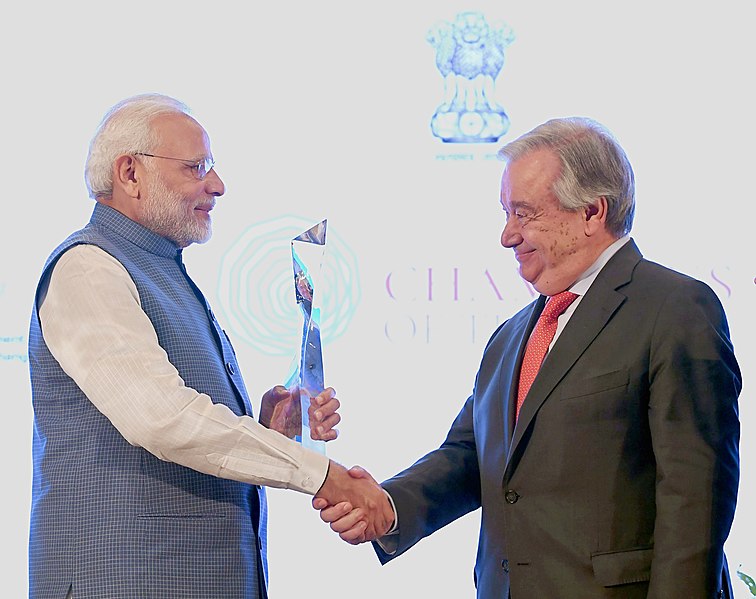
Speaking ahead of the UN Climate Action Summit, which will take place in New York next week, Guterres warned of seven million deaths a year due to climate change if action is not taken. The former Portuguese Prime Minister said “nature is angry. You cannot play games with nature. nature strikes back.” As an example, he referenced the “total destruction” which followed Hurricane Dorian.
Guterres has exhorted world leaders to “bring a plan” rather than a speech to the Summit. Guterres’s special envoy to the Summit, Luis Alfonso de Alba, described this as a “very [clear demand] that all participants identify very concrete measures that can be implemented immediately.”
The Summit will address the major issues surrounding climate change which, per the UN, manifests in the realities that “global emissions are reaching record levels and show no sign of peaking. The last four years were the four hottest on record, and winter temperatures in the Arctic have risen by 3°C since 1990. Sea levels are rising, coral reefs are dying, and we are starting to see the life-threatening impact of climate change on health, through air pollution, heatwaves and risks to food security.”
![By U.S. Department of State from United States [Public domain], via Wikimedia Commons](/wp-content/uploads/2017/11/Secretary_Kerry_Addresses_Delegates_Before_Signing_the_COP21_Climate_Change_Agreement_on_Earth_Day_in_New_York_26514585581-300x200.jpg)
Modi reportedly “recommitted to continue to lead on climate” during a meeting with Guterres earlier this year, with renewable energy being a major facet of this including solar power. A UN report published earlier this year emphasised the importance of rethinking energy infrastructure if climate change is to be effectively combated. According to Union Minister of Petroleum and Natural Gas Dharmendra Pradhan, “the Energy Vision of India, as enunciated by Prime Minister Modi in 2016, is based on four pillars…energy access, energy efficiency, energy sustainability and energy security.”
“Under his [Modi’s] dynamic leadership, we have taken many steps in reducing the energy intensity of our industries and have also increased the green cover,” Union Environment Minister Prakash Javadekar has said. “We are going to other forums where we will highlight India’s achievements.”
Fighting climate change is of paramount importance to India, where environmental health is suffering. Natural disasters such as flooding and heatwaves and issues such as water scarcity are plaguing vast swathes of the country. The 2008-17 decade stands as India’s hottest on record. Going forward, temperature rises carry ominous portents for the country. Even a rise of 1.5 °C could carry devastating implications; such a rise in global temperatures is predicted by 2040, meaning action is desperately needed to counteract and mitigate the effects of climate change. One hopes that the UN Climate Action Summit will offer India a chance to share its vision to “go beyond” the Paris Agreement – and work towards a greener, healthier world.

